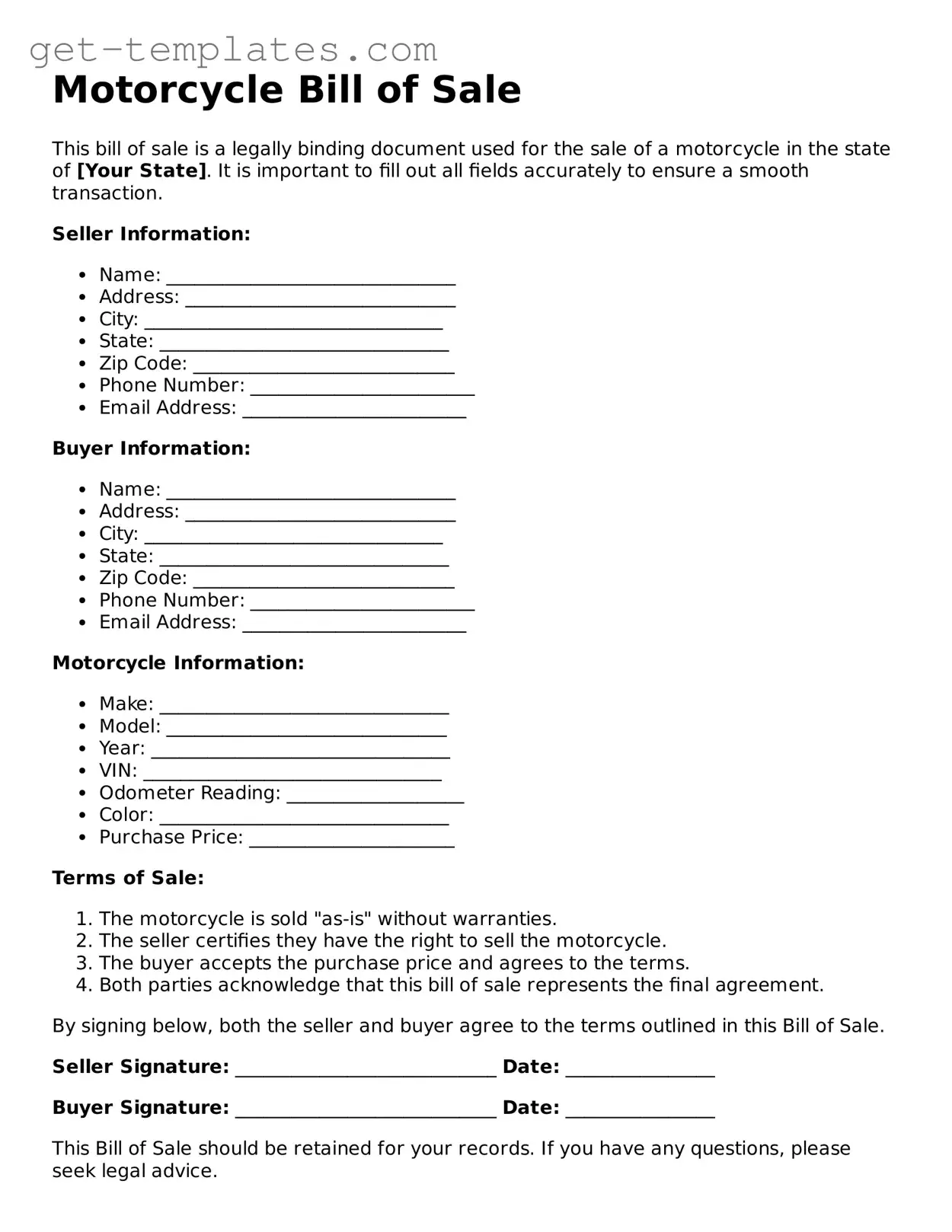Attorney-Approved Motorcycle Bill of Sale Form
A Motorcycle Bill of Sale is a legal document that serves as proof of the sale and transfer of ownership of a motorcycle from one party to another. This form outlines essential details, such as the motorcycle's make, model, and Vehicle Identification Number (VIN), along with the buyer and seller's information. Having a properly completed bill of sale is crucial for both parties to ensure a smooth transaction and protect their rights.
Get Document Online

Attorney-Approved Motorcycle Bill of Sale Form
Get Document Online
You’re halfway through — finish the form
Finish Motorcycle Bill of Sale online — edit, save, download made easy.
Get Document Online
or
⇓ PDF Form
